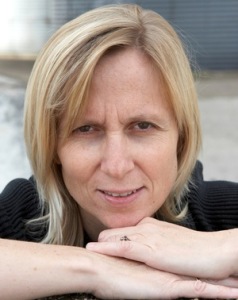Thanks for French writer Frédérique Molay for guest posting today. A quick note that I’m posting on the Writers on the Storm blog today on Making Our Content Work Harder for Us. Thanks!
So just how do you write a good mystery? Well, I’m going to have to disappoint. I don’t have a secret recipe—for mystery writing, that is. I do have one to make delicious cookies, hot from the oven, but my repertoire doesn’t have step-by-step instructions for writing a good novel.
There is some good news though: it is possible to list some of the ingredients that belong in a good mystery. Just explore Raymond Chandler’s “10 Commandments for the Detective Novel,” or S.S. Van Dine’s “20 Rules for Writing Detective Stories,” published by American Magazine in 1928. That said, don’t be fooled, mystery is a genre that appears simple, but hides complexity.
To start, of course, all you need is a detail. A face, an anecdote, a press clipping or a work of art will do. Inspiration can come from any number of places. Anything could trigger a story, which can then unfold, like a movie in your mind.
Once you have a detail, you need to build the plot. In mysteries, there is always a crime—a murder, kidnapping, or heist, or perhaps a coded message or disappearance. It is important to control the story line and the clues that are revealed, because nothing can be left to chance. The strings all need to be connected, and they need to be credible. Van Dine’s rule number 1 reads, “1. The reader must have equal opportunity with the detective for solving the mystery. All clues must be plainly stated and described.” That should not keep both reader and detective from surprising each other.
Mysteries also need charismatic characters. They need to make the reader feel fear, intrigue, and suspense. They need a fast pace, alternating dialogue, description and actions. All these elements help keep the reader turning the pages, which is the goal.
I’d also say that mysteries require a two-fold personality—writers need to dream and be creative, all the while honing mathematical precision. You need to have your feet on the ground and your head in the clouds—in dark, stormy clouds. This genre does more than entertain. It explores our deepest fears and anxieties. It distracts readers with stories about life’s troubles waters, translating the scandals we all experience everyday. Mysteries are a pulse-throbbing fictional investigation into the truths of human life.

So many strings – I’d wind up with a giant knot.
I wonder if there are twenty rules for writing science fiction? I’m going to Google it.
Nice to meet you, Frédérique!
Elizabeth – Thanks for hosting Frédérique.
Frédérique – I like the balance you describe between using one’s imagination and also being practical about details. Readers want believable stories, but they also want stories. I wish you much continued success with the Nico Sirsky series.
“That should not keep both reader and detective from surprising each other.”
– That seems like an odd turn of phrase. I can of course understand how the detective can suprise the reader but how would a reader suprise a detective? As much as I’d like to be able to shock Mma Ramotswe by hiding behind a bush and throwing a rubber snake at her, I don’t think that its going to happen. (If i’m wrong please let me know! – I want to pull that snake trick!)
Thanks Elizabeth for hosting Frédérique. Margot, I love your comment: yes, readers want stories. And Robert, I agree, it is a rather odd turn of phrase. I suspect Frédérique means that the clues should hold surprises for both reader and detective.
I definitely admire mystery writers. They drop clues along the way while also keeping the plot moving forward. I just finished Gone Girl, which I guess is more a thriller than a mystery, but the mysterious details of the story were what kept me glued to those pages.